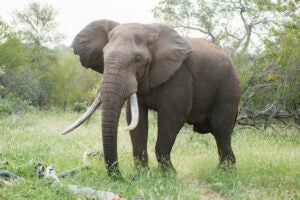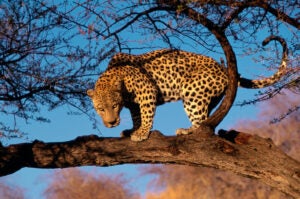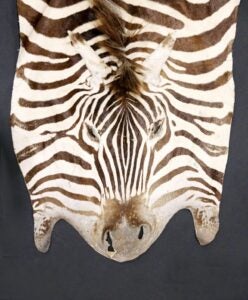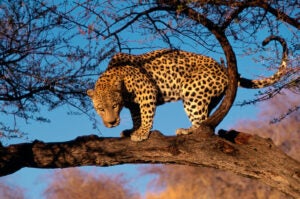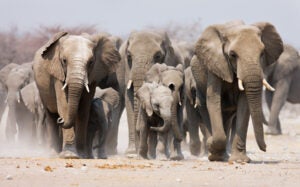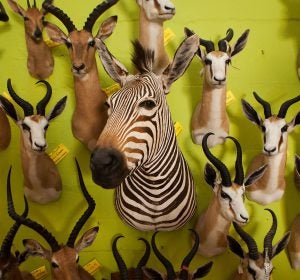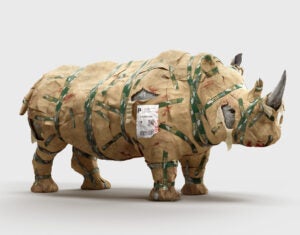
PARIS—A cross-party bill proposal to ban the import of hunting trophies of protected species into France by Ecologist MP Sandra Regol with the support of Renaissance MP Corinne Vignon, Chair of the Assembly’s Study Group on the Condition and Welfare of Animals. According to an poll commissioned by Humane Society International/Europe, this proposed law is supported by the vast majority of French citizens, with 91% declaring themselves in favour of a ban on the import of trophies of endangered species.
France, which took measures to safeguard lions from trophy hunting in the aftermath of Cecil the lion’s death in 2015, currently grants this protection exclusively to lions. Many other protected species, including elephants, leopards and cheetahs, continue to be hunted, mounted and imported as trophies in France.
The introduction of a new legislative proposal raises hope for these animals, as the Bill would amend the Environment Code to expand the hunting trophy import ban, offering protection to a broader range of protected and endangered species. The proposed law would also prohibit the direct or indirect promotion of trophy-hunting an animal covered by the law.
Capucine Meyer, HSI/Europe consultant for the campaign on trophy hunting in France said:
“It is time for the protection status granted to lions to be extended to species that are just as threatened, if not more so, such as the polar bear, the leopard and the African elephant. France must become a leader in the protection of species and biodiversity by extending such prohibitions to other species targeted by trophy hunters. HSI/Europe would also like to congratulate Deputy Mrs. Regol and all the signatory MPs for their commitment to respecting animal life and protecting biodiversity.”
The new law proposal was co-signed by 26 MPs from the Ecologiste-NUPES, Renaissance and Démocrate (MoDem and Indépendants) groups, including Jean-Marc Zulesi, Chairman of the Sustainable Development and Town and Country Planning Committee, and Elodie Jacquier-Laforge, Vice-President of the National Assembly. It follows success in June last year, when Sandra Regol, with the support of Minister Gabriel Attal and Group Chairwoman Aurore Bergé, succeeded in getting an amendment passed in both the National Assembly and the Senate to give customs officers more resources to combat the import of illegal hunting trophies. This unprecedented vote highlighted the general support of parliamentarians and the government in the fight against the import of hunting trophies of protected species.
Milton Federici, Convergence Animaux Politique’s Head of Public Affairs, explains: “We have been working with HSI/Europe on this campaign for over a year, seeking support among parliamentarians. The tabling of this text is both the culmination of this work and the start of a democratic debate that we are calling for in the Assembly and Senate on the import of hunting trophies of endangered species. We are extremely grateful to Sandra Regol and all the other MPs who support this text for creating the conditions for this debate.”
Background Facts:
- Trophy hunting poses a grave threat to biodiversity and ecosystem stability. It involves the killing of wild animals for the purpose of exhibiting their heads, skins or other body parts as trophies. This cruel and detrimental activity exacerbates the decline of species, endangering their survival and disrupting ecosystems.
- Trophy hunting is not just rejected by an overwhelming majority of French and European citizens: in South Africa, for example, which is Africa’s main exporter of wildlife trophies, two out of three people questioned said they were against trophy hunting. [2] .
[1] Ifop survey for HSI/Europe conducted by online self-administered questionnaire from 13 to 14 June 2023 among a sample of 1,003 people, representative of the French population aged 18 and over.
[2] HSI/Europe (2022). “Report: Hunting – Ipsos Khayabus W1 2022” conducted by Ipsos South Africa
ENDS
Media contact: Cassie Bodin-Duval, international media relations coordinator, cbodinduval@hsi.org

